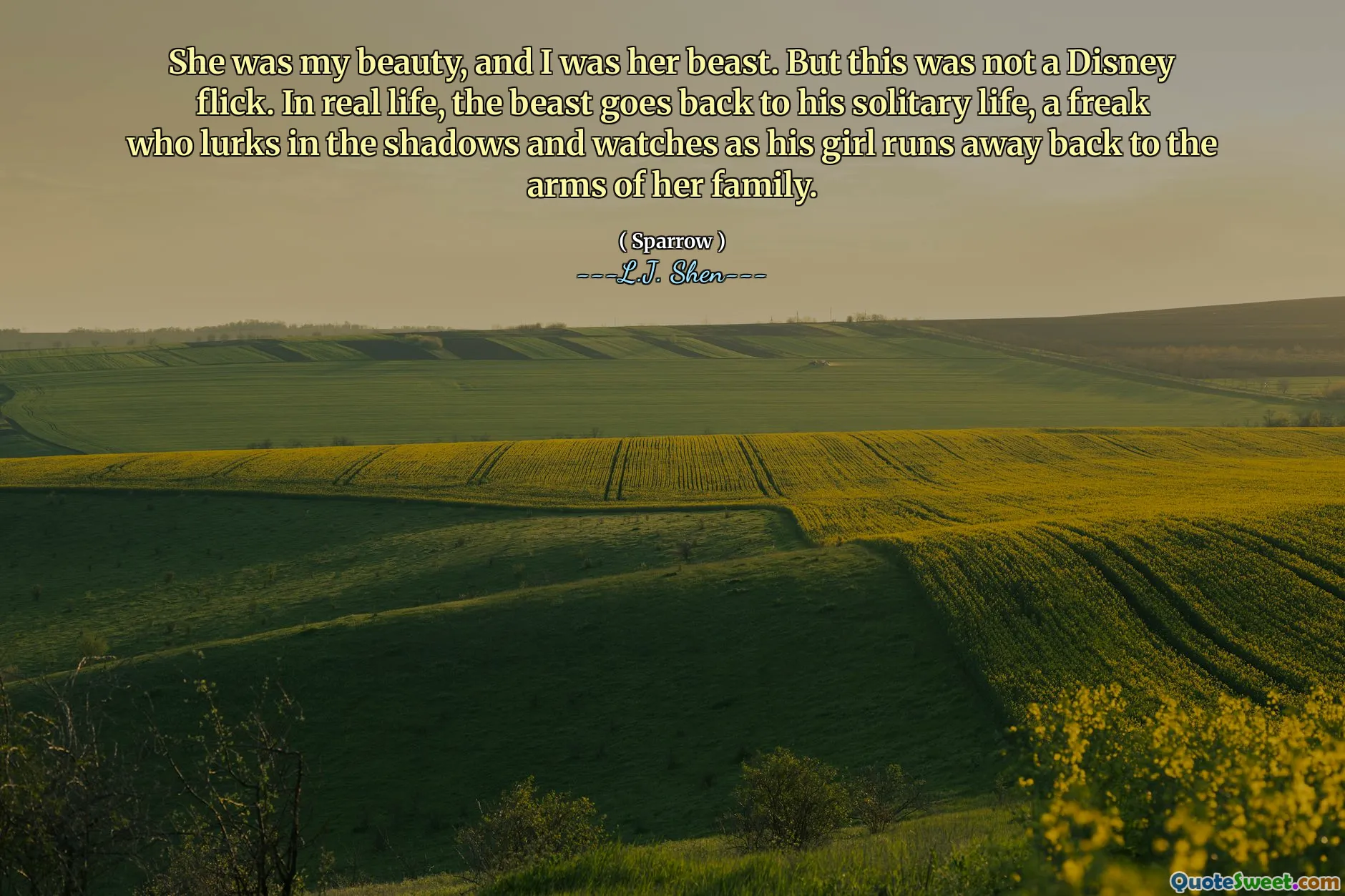
She was my beauty, and I was her beast. But this was not a Disney flick. In real life, the beast goes back to his solitary life, a freak who lurks in the shadows and watches as his girl runs away back to the arms of her family.
This quote delves into a mature and dark exploration of love and identity, contrasting the idyllic fairy-tale narrative with the often harsh realities of human relationships. It evokes the image of a misunderstood, perhaps even tragic figure—someone who perceives themselves as a beast, burdened by their own darkness or flaws, and struggles to reconcile that with feelings of longing or love. The speaker recognizes that the romanticized images of beauty and beast from stories do not translate smoothly into real life, where complexities, scars, and personal shadows define human interactions.
The metaphor of the 'beast' underscores a sense of loneliness, alienation, and self-imposed exile. The beast doesn't live happily in a castle with a princess, but rather in solitude, lurking in shadows, perhaps haunted by past mistakes or internal battles. Despite the presence of love—symbolized by the woman—there is a barrier, possibly emotional or societal, that prevents a conventional happily-ever-after. The woman returning to her family signifies that, despite the depth of his feelings, the protagonist feels unworthy or unable to bridge the gap between their worlds.
This quote resonates on a universal level, reflecting the often painful reality that love does not always transcend inner demons or external obstacles. It sheds light on the internal struggles of people who believe they are insurmountable 'freaks' or monsters, even when others see beauty. It’s a poignant reminder that vulnerability, self-perception, and acceptance are integral to authentic connections and that societal narratives around love are sometimes far from the truth of our lived experiences.
The narrative invites us to reflect on personal identity, forgiveness, and the ways we perceive ourselves through the lens of pain or shame. True connection requires understanding and compassion, not blindness to the darkness within, but acknowledgment of it amid the acceptance of love.






